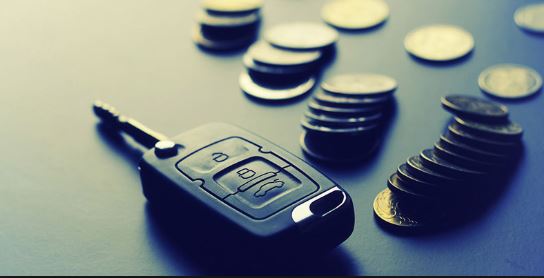I was a lucky kid when I was in high school. The car I inherited came with, among other things, a little DVD player in the glove compartment and a screen which flipped down from the ceiling. When I was feeling less than studious, I would sneak out to my car and watch a movie instead of going to another weary study hall.
It was a fun distraction, but it was murder on my battery, and replacing a car battery when you’re earning minimum-wage from a part-time job isn’t the easiest task. We can show you how to make money by renting your car out. Even as you get older, those little car expenses can quickly add up. They don’t have to, though. In fact, there are a bunch of things you can do to save money on your car, and they really don’t require a great deal of time or effort.
Check Your Fluid Levels
It doesn’t take a mechanic to do this, and if your mechanic tells you it does, don’t go back to their garage. Checking a few basic fluids on your own comes with two-fold savings. First, by checking yourself, you’re saving the cost of having someone else do it for you. Second, by regularly checking your fluids, you know when something might need to be replenished or replaced, saving you from damaging parts down the road.
You don’t need to be a mechanical whiz to check your car. There are an endless number of guides to teach you what to look for, including:
- Engine oil
- Transmission fluid
- Coolant
- Brake fluid
- Windshield washer fluid
- Power steering fluid
You can replenish some of these fluids yourself without any hassle beyond locating a cap. How awesome is that?
Check Your Filter
This is another incredibly easy DIY operation. Your car’s air filter can weigh down your engine efficiency, with some estimates saying you can lose up to 10% of your gas mileage with a dirty filter. Spare yourself the extra cents at the gas pump and check your filter once a month. It’s not something that necessarily requires replacing, either. You can clean it with an air hose, reducing the number of replacements you have to pay for while still helping you maintain the best fuel economy.
Keep Your Tires Inflated
You know it’s good to not drive on a flat, but don’t just eyeball it when it comes to your tires. You can check and fill them in a few seconds at the gas station (often for free). Plus, keeping your tires properly inflated can increase your gas mileage by a few percentage points per tire. Meaning, you can get more value out of what you put in at the pump. Proper inflation also helps the tires last longer, so you won’t be spending money replacing them on a regular basis.
Check for Insurance Discounts
You don’t have to change your whole policy to save on your car insurance. Many providers offer discounts or incentive programs you can take advantage of simply by being a good driver. See if your insurance company gives an accident-free bonus for safe driving. If you are a student driver or you have one on your policy, ask about the good student discount. You can motivate yourself to study while you save.
Take Public Transit or Carpool
An easy way to save money on your car is to not drive it as often. If you live in an area where public transportation is available, consider taking it on occasion. Avoid parking nightmares by taking the bus or train to a show or event, or enjoy your night out a bit more without worrying about driving home impaired.
Another easy option is to carpool. Yeah, you might have a few extra people in your car every once in a while, but you’ll be reducing the distance you’re driving on a regular basis, which means you’re spending less on gas, putting less costly wear on the car, and even being a bit environmentally conscious in the process.
Don’t Idle Unless Necessary
You’re going to have to run your engine if you’re stuck in traffic, but if it’s a cold winter day, you don’t need to let your car warm up before you head out. Newer cars are built to run efficiently a few seconds after ignition, so sitting around waiting for your car to warm up is wasting gas.
Instead, give your vehicle long enough for you to put on your seatbelt and adjust the radio, and then don’t be afraid to get going. If you find your new car is having trouble turning over in the cold, don’t be afraid to seek out a mechanic’s help before you end up with a much larger, more expensive problem.
Pay for the Help You Need
There are a lot of simple things you can do on your own when it comes to your car, but one of the most costly mistakes you can make when it comes to maintaining your vehicle is to assume being able to do some things means being able to do them all. Like anything else, your car will experience wear and tear and at some point, you’ll need to get the lights checked, investigate some noises, or have real maintenance completed by a professional.
Don’t wait too long when it comes to routine maintenance, or it could end up leading to more costly damage. Instead, find a mechanic you can trust, and work with him or her to make sure your car is properly maintained at regular intervals. It might not seem like the cheapest option upfront, but it’s a lot cheaper than having to pay for a new, non-damaged car.

Pingback: Leasing Vs Buying A Car Pros And Cons - Debt Free To Early Retirement